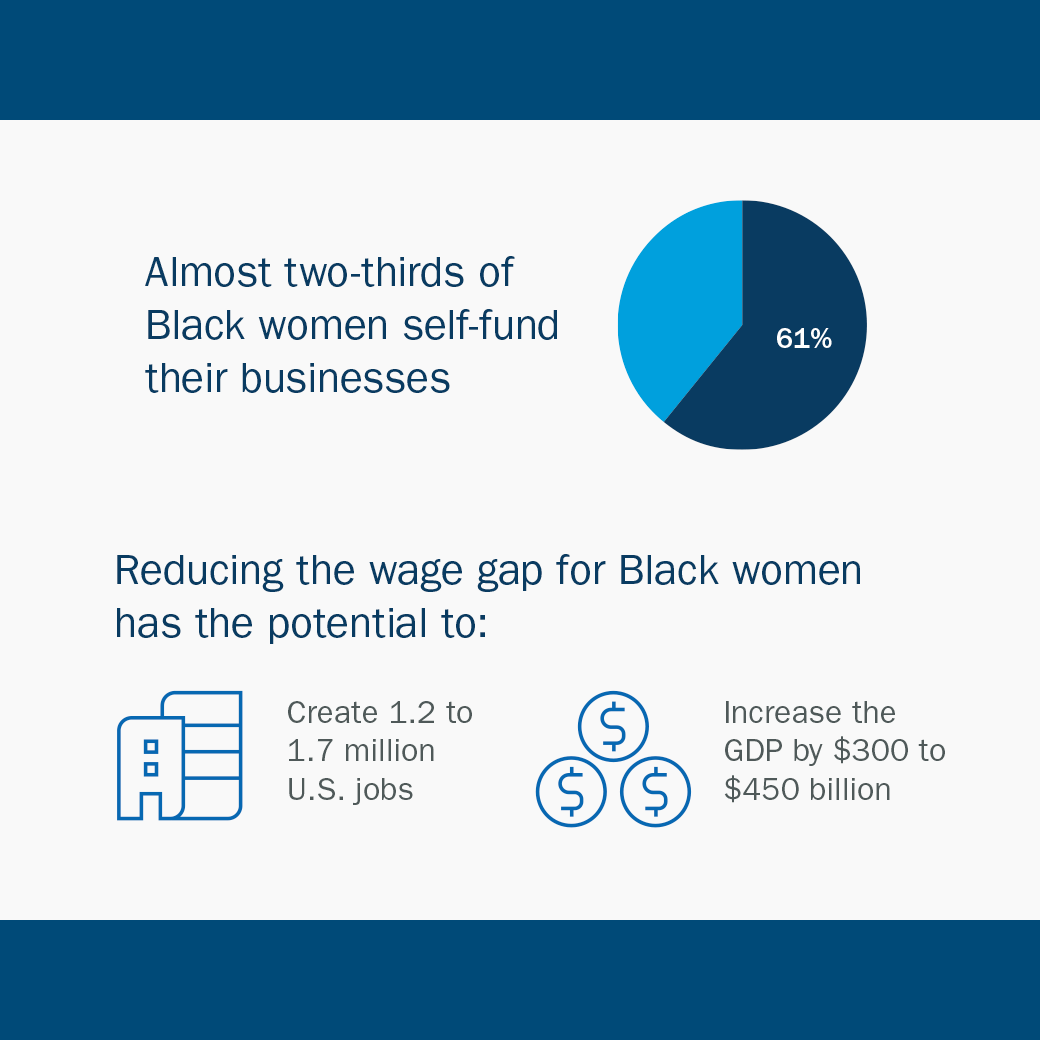The paucity of Black women in the C-suite stems from a long history of intersectional biases, stereotypes and exclusions that have narrowed the opportunities for women, especially Black women, to climb to the top of the business world. Although explicit racism and sexism are no longer acceptable in the workplace, Black women continue to deal with the consequences of centuries of exclusion and unconscious and conscious biases in the workplace.
10.01.22
The future of Black women in corporate leadership: Opening doors to move up
Insights Report
As of spring 2022, 44 Fortune 500 CEOs are women. Yet, only two—Thasunda Brown Duckett (TIAA) and Rosalind Brewer (Walgreens Boots Alliance)—are Black, meaning they represent 4.5% of female Fortune 500 CEOs and just 0.4% of all Fortune 500 CEOs.

Authors

J. Jarpa Dawuni
Howard University

Jordan Frazier
Howard University Alumna
Sign up for the TIAA Institute newsletter
Get the latest research and insights straight in your inbox
Related Publications
